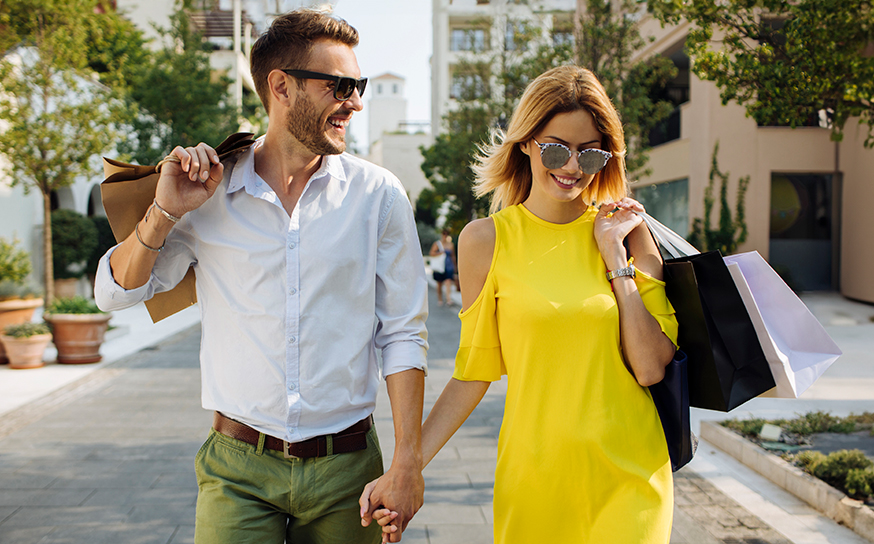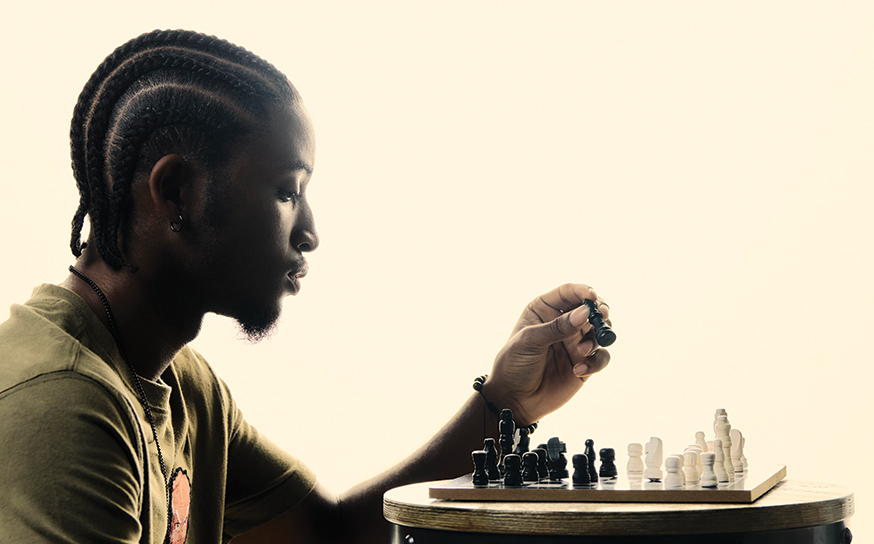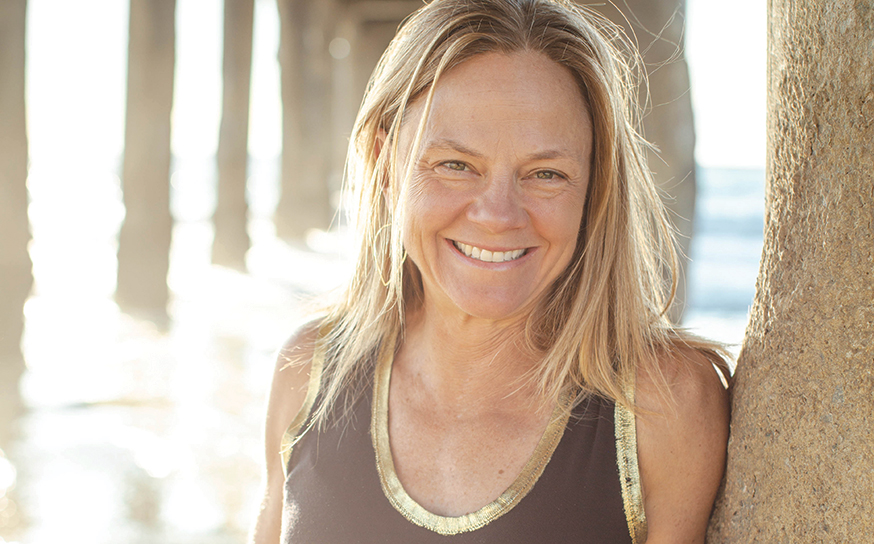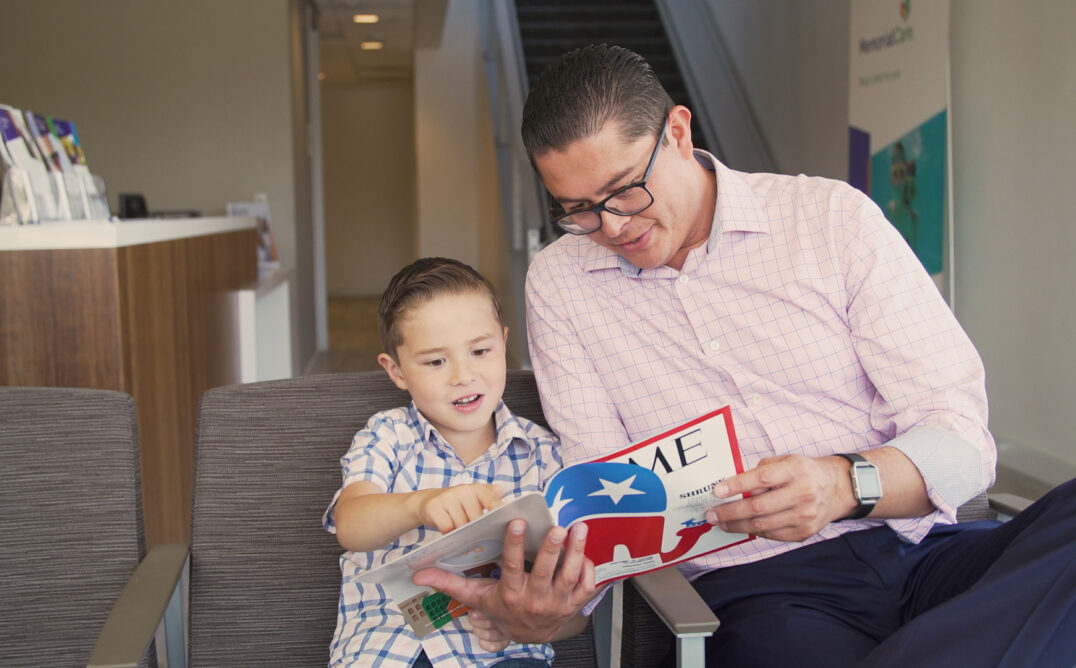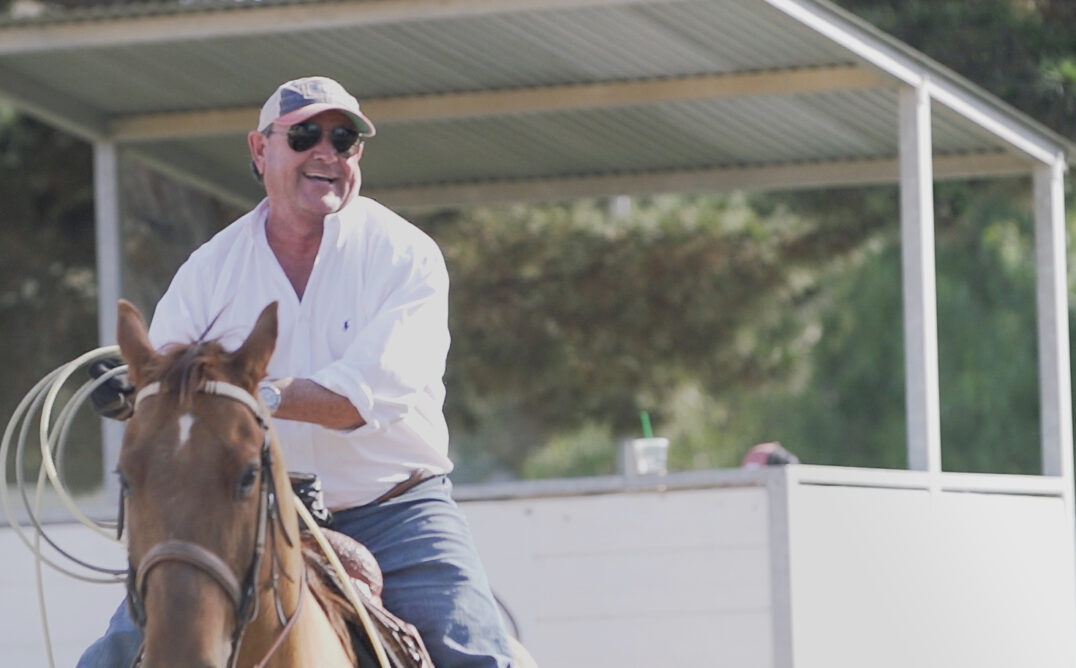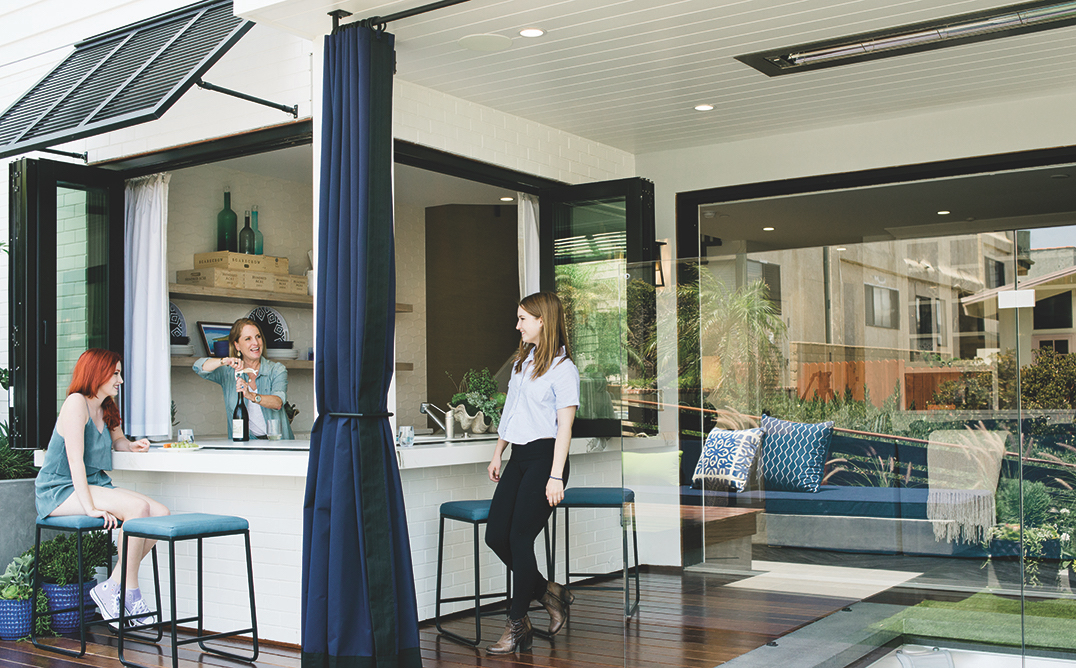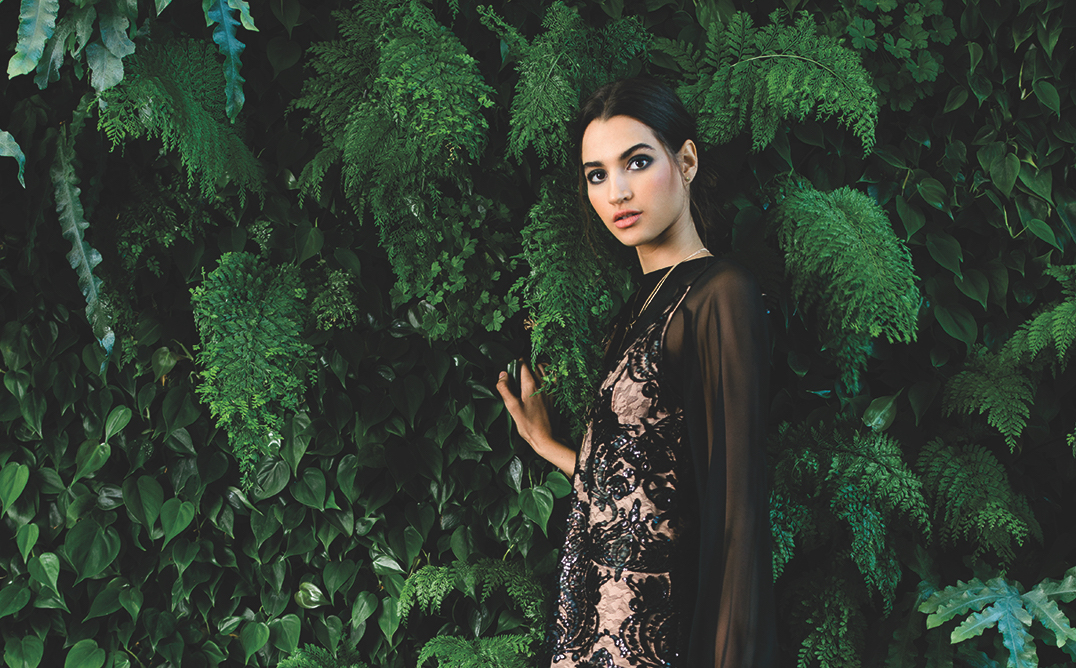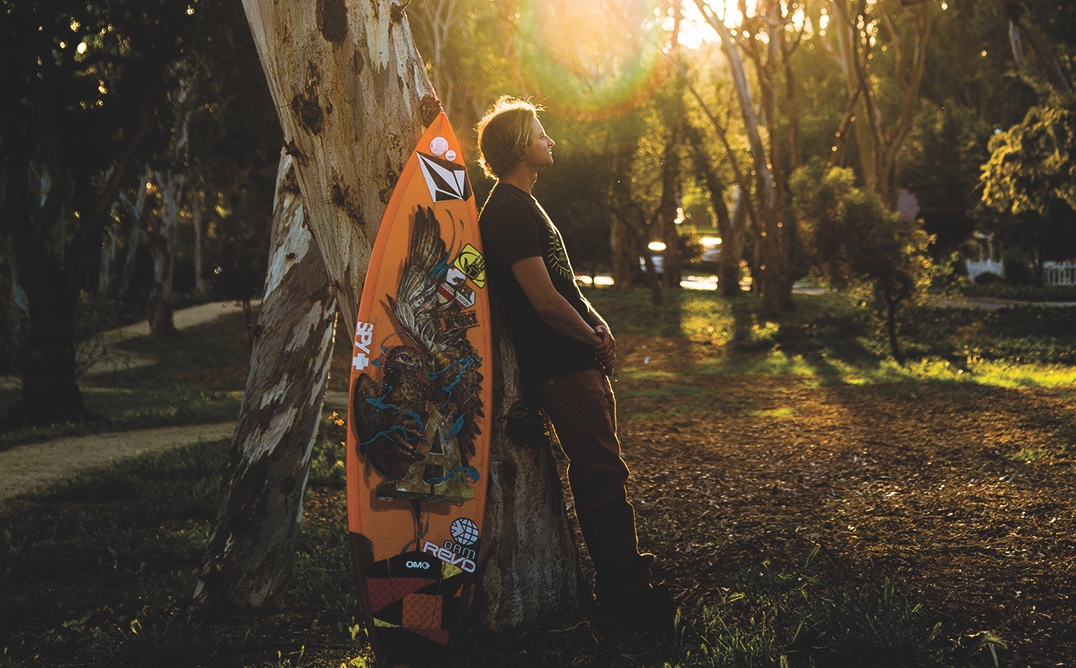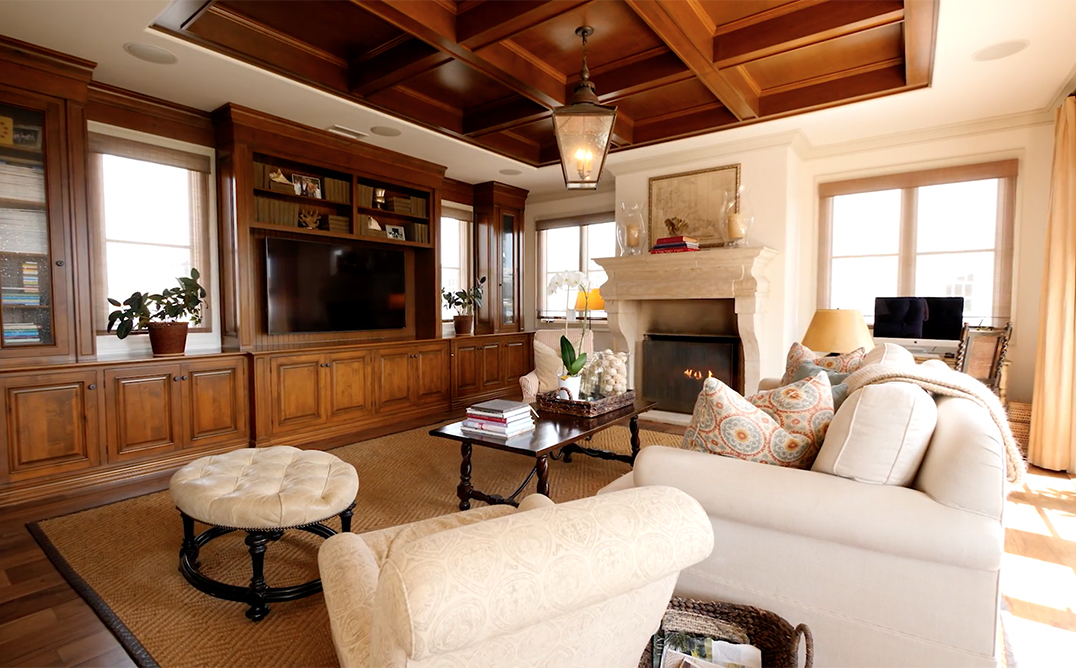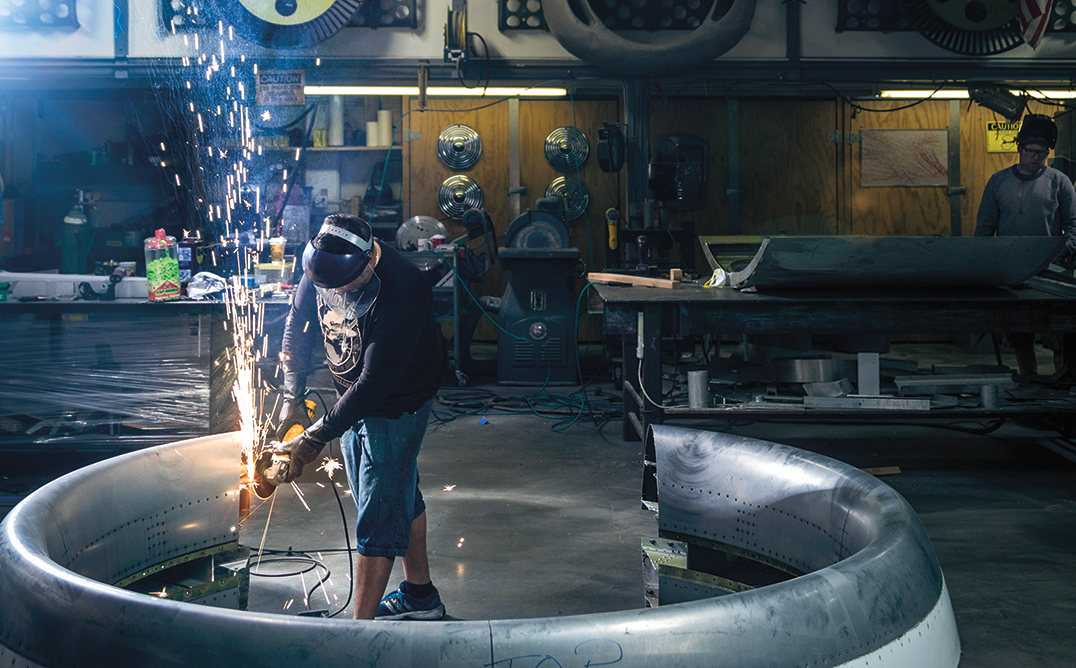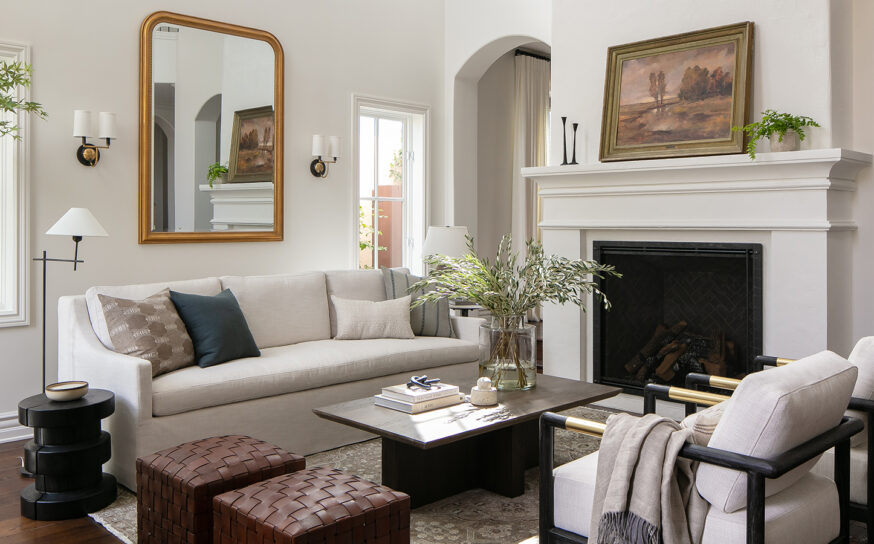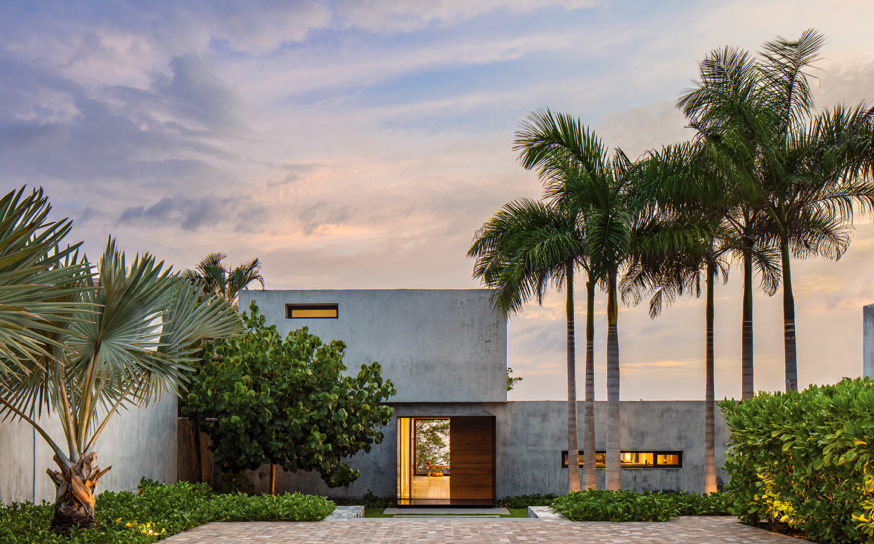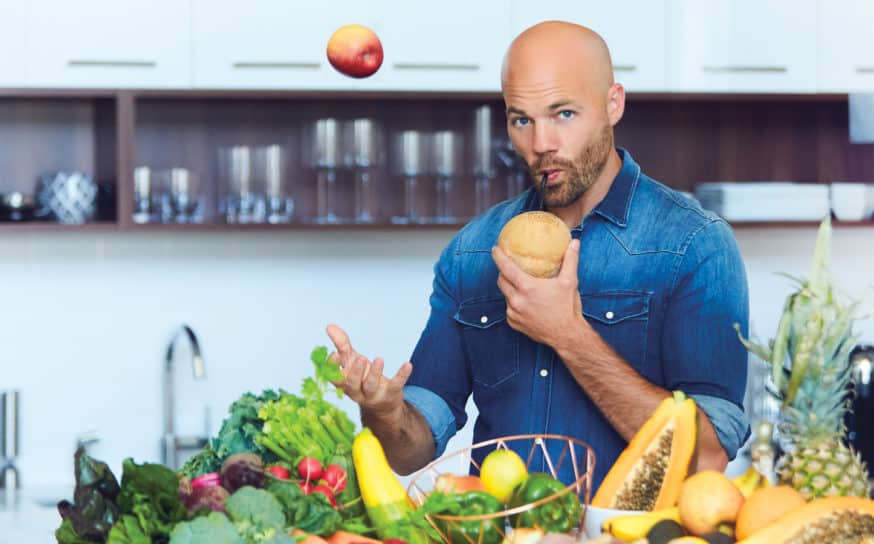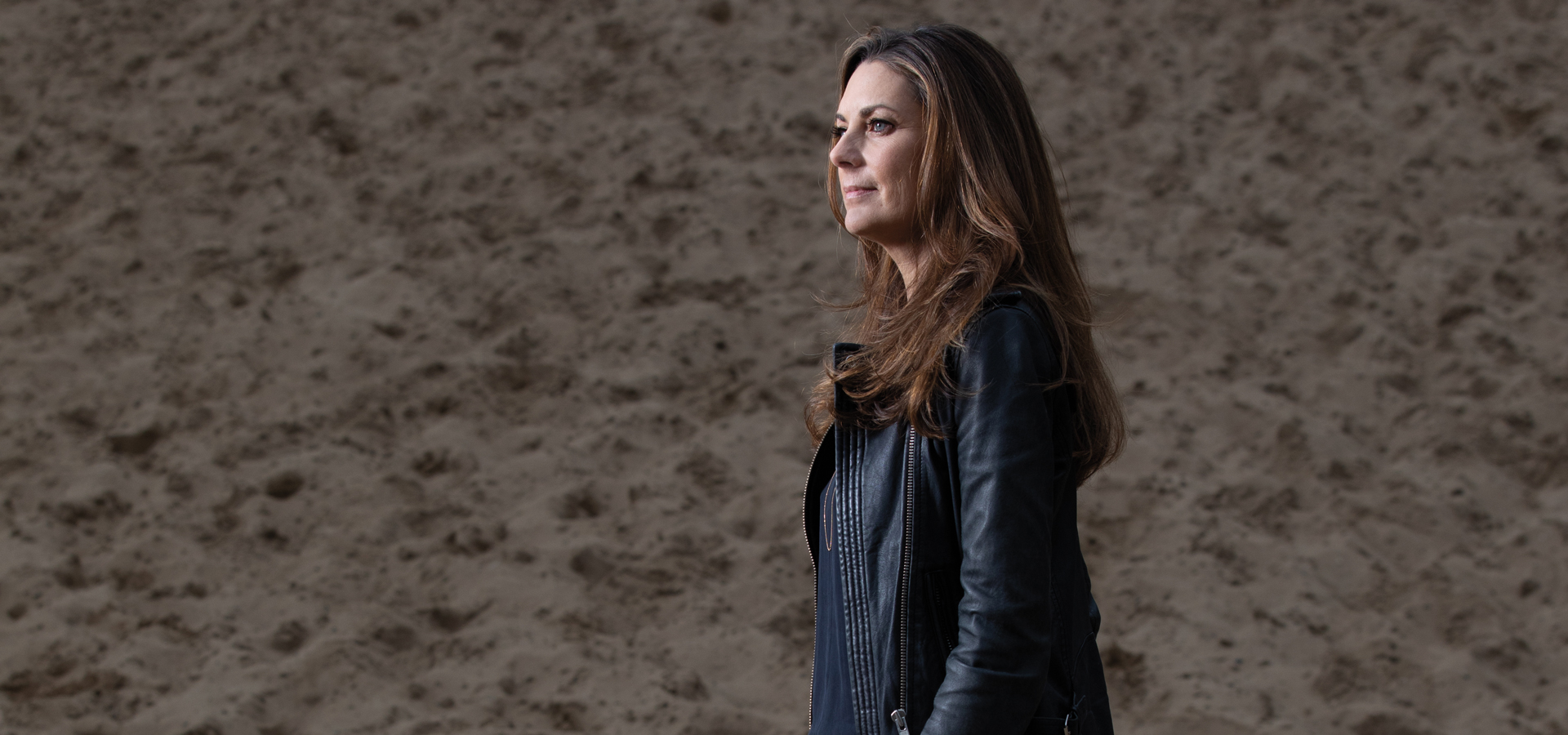
Salam Darwaza built a career bridging the cultural gap that exists between the Western and Middle Eastern world
A producer’s quest for connection and understanding.
- CategoryPeople
- Interviewed & Photographed byKat Monk
 It has been said that you have one foot in the Arab world and one foot in the West. Can you share with us what that looks like?
It has been said that you have one foot in the Arab world and one foot in the West. Can you share with us what that looks like?
I was born and raised in Saudi Arabia, where my father worked for Aramco—the Arabian American oil company. I was a Palestinian girl from a Muslim household, growing up alongside the children of American oil workers. We lived on Christmas Tree Circle, woke up for 7 a.m. Arabic classes, spent weekends at the pool for swim meets, wore veils when we left to go shopping outside the compound and camped in the Rub’al Khali desert as a Girl Scout. A clash of cultures is an understatement, but it was just normal for me. Now as an adult, going between Arab culture and the Western world may seem extreme, but it’s all I’ve really ever known.
Violence seems prevalent these days everywhere. Do you ever fear for your safety when you are in the Middle East?
No, I don’t fear for my safety in the places I’ve recently been to in the Middle East, like Jordan and the UAE. Those countries are extremely safe with very little crime. It helps that I have family and friends living there and that I know the culture. I encourage all my friends to travel to Jordan and explore Petra, Wadi Rum and the Dead Sea. Those are some of my favorite places in the world—places where I feel most at peace.
When did you develop your passion for film and storytelling?
We came to visit the States when I was in eighth grade, and our first stop was New York City. I was in awe of the city but was absolutely mesmerized by American television. Instead of exploring the city, we were glued to the TV those first few days. Growing up we had limited access to television and films. I loved being entertained and seeing the world through a different lens. I knew at that moment I wanted to be a storyteller and slowly learned the art of telling stories with pictures.
Explain to us your role as a producer.
The hardest job to define is that of the producer. One day it can be desperately digging for financing for the film; the next day it can be getting permission from government officials to get your crew into an impossible location. But for me, the most important part of producing comes before all of that. I need to feel passionate about the subject matter. I need to connect to it personally. If I have that, it is my compass in every decision I make thereafter. I’ve produced everything from a 60-second commercial in Milan, an hour-long live event show in Abu Dhabi, to a 75-minute documentary film in Za’atari refugee camp. I’ve learned how to tell a story in 30 seconds or an hour, pre-recorded or live, for an American audience or a global audience.
Your film Salam Neighbor came out in 2015. Tell us about the film and how our readers can watch it?
Our documentary film is the story of two Americans who head to the edge of war, just seven miles from the Syrian border, to live among 85,000 refugees in Jordan’s Za’atari camp. As the daughter of Palestinian refugees and someone who was raised in host countries, my life experience was an inspiration point for the film, allowing me to lend a voice of Arab authenticity and speak from a personal perspective on the current refugee crisis. Our goal for this film was to humanize the refugee crisis, enabling viewers here in the U.S. to see it in a different light. The film was initially available on Netflix but is currently available on iTunes and Amazon.
Your films are attempting to bridge the cultural gap. Can you explain how you are trying to achieve this goal, especially since there are so many negative stereotypes depicted in the media?
While there may be a cultural gap between the West and the Middle East, there is no humanity gap. We are the same at our core. On the screen you can look at other people’s lives … they suffer like you, they smile and cry and celebrate and love just like you. A cultural gap is simply a fear of the unknown. By making people accessible—bringing them into our living room—you slowly begin to remove the unknown. When you bring people together, dim the lights and tell them a story they can relate to, show them there are people that may seem totally different but are like you in so many ways, you can open their minds and hearts to a different world.
You recently got back from working in Abu Dhabi, right?
I was working with Done+Dusted in Abu Dhabi to produce the UAE’s official 47th National Day live show celebration. It was a fantastic experience and allowed me an opportunity to return to the Middle East to share the story of Sheikh Zayed, the country’s founder, who despite his simple Bedouin beginnings was a visionary and progressive man. Producing a live show was unlike any other experience. You quickly realize that when you get to work with the best crew in the world, however complicated things may get, nothing is ever impossible. Whether it’s ensuring the Royal Philharmonic Orchestra play live seamlessly alongside 37 Arab musicians, figuring out how to get 40 camels to cross a massive stage in under four minutes, to timing an F-16 flyover within a seven-second window … it can all happen.
Tell us about your involvement with the Muslim Public Affairs Council and what MPAC is trying to achieve.
I’m a member of MPAC’s Hollywood Bureau’s Advisory Committee. Our role is to advise MPAC on ways to engage and partner with the entertainment industry to change the negative stereotypes of Muslims in the media. I believe in MPAC’s work and their progressive and inclusive mission. Given the challenges of the past few years, they have done so much to improve the depiction of Muslims in film and TV.
What brought you to Manhattan Beach?
Ironically, the reason I love Manhattan Beach so much is because it reminds me of the neighborhood where I grew up. I am surrounded by beautiful palm trees, live next to a massive sand dune and an oil refinery—just like where I grew up halfway around the world. There’s also a strong sense of community, which can be difficult to find in a big city. As someone who has grown up as the child of refugees and lived in so many different places, I’ve always struggled to feel at home. But as soon as I came to Manhattan Beach, I knew I would never want to leave and had finally found a place I could call home. I simply love it here.
What’s next for you?
I’m working on a few different documentary films and collaborating with some brilliant women directors and producers. Nothing inspires me more than telling a story that hasn’t been told and taking on a new adventure.
Southbay ‘s Annual Spring Style Guide Has the Latest Fashion Trends, Jewelry, Home Goods and Gifts!
Shop local and support our amazing businesses.






